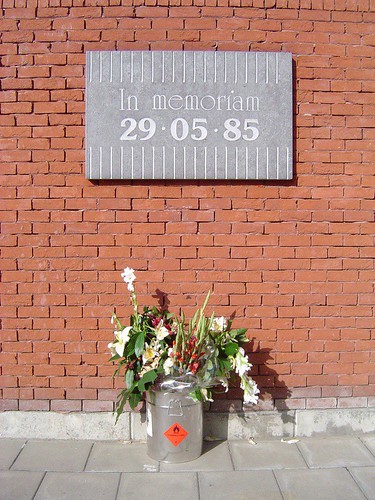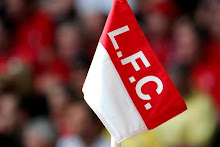
On 30 April 2005, Everton manager David Moyes made a controversial statement following his side's 2-0 defeat away to Fulham which appeared to infer that the 1985 Heysel disaster was a contributing factor to the Blues' downfall in the 1990s. This came less than a month before the 20th anniversary of the tragedy which cost 39 football supporters their lives:
"Personally, taking a team into Europe is something I wanted to do," he said, when asked about the Blues’ European ambitions. "This is a club that has won in Europe and if it wasn't for the years after Heysel maybe Everton would have been regular contenders. We've got to try and make sure this is not just a one-off."
Surprisingly no journalists or pundits pulled him up on this despite the fact that the statement impliesthat the repercussions of Heysel had a knock-on effect on the Goodison gravy train - a popular myth in the game. The Blues were crowned League Champions in the 1984/85 season which also saw them lift the European Cup Winners' Cup.
English clubs were banned from entering European competitions by UEFA for five years. Some Everton supporters believe that the implication of that European ban was the downfall of their greatest team since Harry Catterick's 'School of Science' squad of the 1960s.
If this was the case why did Gary Lineker join them in the summer 1985, when European football was off the menu?
A year later he moved onto pastures new in the form of FC Barcelona but money was at the forefront of the transfer rather than the prospect of European football although it may have served as an added bonus for the England international who claims he was sold against his will by the Goodison board.
Everton's team, contrary to myth, did not fall apart with the departure of Lineker as they proved in 1987 when they pipped the Reds to the title. The only person to leave the 'sinking ship' was manager Howard Kendall who grew frustrated with the embargo on his club playing on the continent.
Between 1985/86 and 1989/90, 20 English clubs were affected by the post-Heysel ban. Liverpool were banned for a further year on account of being in the final and their supporters seen as the sole culprits for the deaths of 39 supporters in the dilapidated Heysel Stadium.
Despite this, Liverpool bounced back. As did Arsenal, Manchester United and even Tottenham Hotspur. Had no ban been in effect, Arsenal would have qualified for the European Cup once and the UEFA Cup four seasons. Spurs would match their local rivals in terms of entries to the UEFA Cup, also with four. United would have made the competition twice whilst the Merseyside clubs would have, collectively, qualified for the European Cup five times, the UEFA Cup three times and the Cup Winners' Cup twice - although Everton's place in the 86/87 competition would have been awarded by default due to Liverpool scooping a League and FA Cup double the season previous.
Some Everton supporters will tell you that Heysel put paid to their club’s glory years but, in reality, it was the expansion and evolution of the game into the big-money monster that it continues to become that saw them left behind. Fresh investment into the coffers at Goodison Park has been scarce – partially down to the fact that potential suitors do not see Everton’s working class facade as an attractive selling point compared to the likes of Chelsea or Arsenal.
Regardless of this, the fact remains that Moyes claimed that Everton were the biggest victims of Heysel – a tragedy where 39 people lost their lives – to score points in his never-ending war of words with Liverpool Football Club is a disgrace and an insult to those who died on that fateful night in Brussels and their families who continue to grieve 24 years on.

